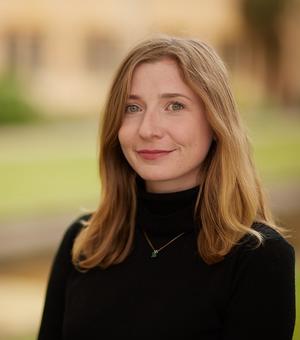Dr Lia Brazil
Research Fellow
Nuffield College
I am a historian of international law, international organisations, humanitarianism, and imperialism in the nineteenth and twentieth centuries. I am interested in practices of warfare, medical relief, humanitarian intervention, and emergency legislation in the British Empire.
Before coming to Oxford I completed my PhD at the European University Institute, Florence, in 2021 and taught at University College Dublin, where I completed my MA in Modern European History. I am the Senior Associate Editor of the European Review of History and an Early Career Member of the Royal Historical Society.
Research Interests
My PhD research looked at the history of international law in the British Empire, concentrating on South Africa and Ireland from 1899-1921. This project was framed as a socio-legal history, exploring how international legal categories and classifications shifted conflict experiences for ordinary people, including soldiers, prisoners, doctors, and nurses. I began by analysing the emergence of international legal codification in the late-19th century, focusing on the 1899 Hague Conference. I explored debates over the application of these laws devised at the Hague to the Second South African War (1899-1902), to understand the alleged limits of international law and its exclusion from internal and imperial conflicts. I then examined the use of the Red Cross symbol and language of the 1864 Geneva Convention by guerrilla fighters in South Africa. On the ground in conflict, these fighters repeatedly used international legal ideas and rhetoric though without reference to specific international legal texts and doctrine. Turning to Ireland, I uncovered a similar deployment of medical relief under the aegis of the Red Cross during the Easter 1916 rebellion and subsequent guerrilla conflict. Focusing on humanitarian relief in this conflict, I argued that participating in humanitarian networks and activities were a way for Irish fighters to engage with international law. By harnessing legal categories, Irish prisoners and politicians attempted to reclassify the conflict from an ‘internal struggle’ to an independent war. I am currently re-working this project into a book manuscript by expanding on allegations of legal atrocities in both conflicts, and the categorisation of prisoners of war in South Africa.
My current research is part of the Arts and Humanities Research Council funded project ‘INGOs in the Long Humanitarian Century – Legacy, Legitimacy and Leading into the Future’, coordinated by Professor Andrew Thompson and Professor Mike Aaronson at Nuffield College. We aim to bring together academics and practitioners from International NGOs to consider the historical roots of current challenges. As part of this project, I am interested in the legitimacy of INGOs; how it has built up, shifted, and abated over time. I look at the role of international law in creating and sustaining this legitimacy, but also in the legitimacy generated from popular support for INGOs, through religious beliefs, cultural assumptions, and experiences of warfare. The International Committee of the Red Cross, its national societies, and ad hoc alternatives to the Red Cross on the ground, are the subject of my initial research on this project.
Intersecting with these two projects are several other research interests. First, the impact of international legal change on women during warfare, in classifying or defining gender-based violence as a separate category of violence, and women’s advocacy on an international stage during the interwar period. Second, the interplay between international, imperial, and ‘internal’ conflicts and the evolving legal parameters of civil wars. Finally, I am interested in the provision of medical relief during periods of conflict and the medicalisation of humanitarian intervention.
Publications
Period:
Specialism:
College:




